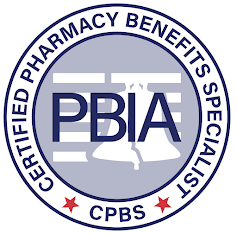Supreme Court takes up PBM case: Does ERISA preempt states’ efforts to regulate drug prices and other notes from around the interweb:
- Supreme Court takes up PBM case: Does ERISA preempt states’ efforts to regulate drug prices? The U.S. Supreme Court plans to look at states’ ability to regulate pharmacy benefit managers this term. Glen Mulready, Oklahoma’s insurance commissioner, is trying to overturn an appeals court ruling that found that the Employee Retirement Income Security Act of 1974 benefits rule uniformity provisions preempt state efforts to regulate PBMs when the PBMs are serving self-funded employer health plans. The Supreme Court “has long cautioned against stretching ERISA to preempt laws in ‘traditionally state-regulated’ areas about which ‘ERISA has nothing to say,’” Mulready says in a brief filed in connection with the case, Mulready v. Pharmaceutical Care Management Association. “Pharmacy regulation is an area of traditional state concern and neither PBMs nor prescription-drug benefits are mentioned anywhere in ERISA.” But the PCMA, the PBMs’ group, says ERISA should preempt the Oklahoma PBM law.
- What Went Wrong: How Formularies, Contracts, and Rebates Created a Headwind for Biosimilars. The promise of biosimilars was supposed to be simple: more competition, lower costs and better access for patients. Yet as the dust settles from the introduction of adalimumab biosimilars following Humira’s (AbbVie) patent expiration at long last, it’s clear that formularies have become one of the biggest barriers to realizing the cost-saving potential of biosimilars. When adalimumab-atto (Amjevita; Amgen), the first biosimilar for adalimumab, launched, its adoption was alarmingly low.1 As other biosimilars entered the market in quick succession, hopes were high that price competition would soon follow. But the market manipulation enabled by formulary management has instead slowed down the entire process by creating significant headwinds.
- Employers haven’t a clue how their drug benefits are managed. Most employers have little idea what the pharmacy benefit managers they hire do with the money they exchange for the medications used by their employees, according to a KFF survey released Wednesday morning. In KFF’s latest employer health benefits survey, company officials were asked how much of the rebates collected from drugmakers by pharmacy benefit managers, or PBMs, is returned to them. In recent years, the pharmaceutical industry has tried to deflect criticism of high drug prices by saying much of that income is siphoned off by the PBMs, companies that manage patients’ drug benefits on behalf of employers and health plans. Employers may assume the PBMs are acting in their best interest, but they don’t have a legal obligation to do so.
- PBM 101: Manufacturer Copay Assistance Programs. Alternate Funding Programs, such as copay assistance programs (CAPs), are offered by manufacturers on some brand name medications to lower patients’ out-of-pocket costs. While the focus is on removing barriers, if not managed, these programs can circumvent the formulary and the plan design’s ability to steer members toward lower cost and effective therapies. In response, Pharmacy Benefit Managers (PBM) have developed programs that plan sponsors can opt into. PBMs either manage their own programs or outsource all or a portion of their programs. One such program is manufacturer copay assistance programs. CAPs are non-need-based programs for those on commercial or private insurance. PBMs typically manage CAP in two ways: accumulator programs and/or variable copay programs.
